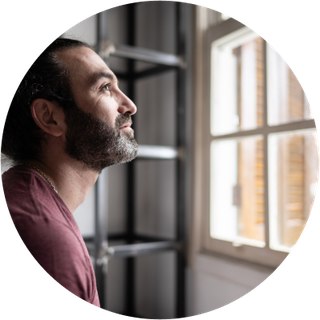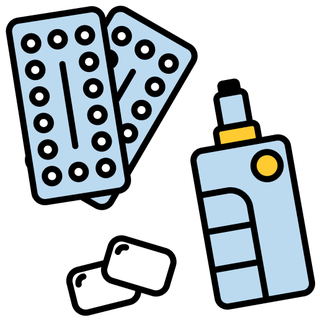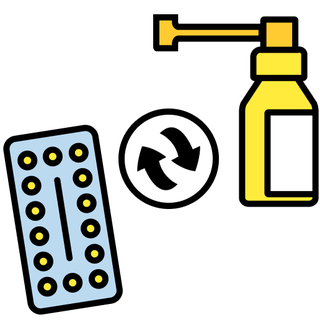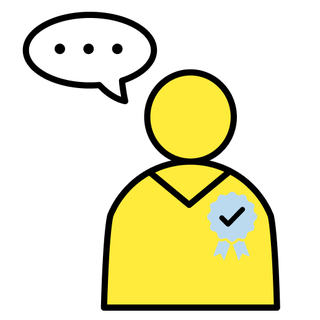Get back on track after a smoking relapse
You decided to quit smoking and things were going well. Then one tough day hit, and you smoked again.
Now you might feel like you have failed or let your loved ones down.
But here’s the truth. Relapsing is not the end! It's just a setback that many people face on their journey to quitting for good.
What matters most is that you keep trying. Every attempt brings you closer to a healthier, smoke-free life.
Understanding relapse
A relapse means going back to smoking after you've tried to quit. It happens to many people and is completely normal. In fact, relapsing is part of the process for most people.
Remember, relapsing is not a sign of failure, it is just a bump in the road.
If you've had "just one puff" or a single cigarette, that is a lapse, not a relapse. A lapse is a minor slip-up, so shrug it off and keep going!
But if you are back to smoking regularly, take stock and set a new quit date.
Choose a day that feels right, ideally within the next two weeks, to give yourself time to plan. You could also create a personal quit plan for tailored tips and support to help you stay on track.
Do not see a relapse as a defeat. The key is not to give up on giving up!

Why do relapses happen?
Relapses can happen because of stress, tough situations or trying to quit using just willpower.
Smoking is a strong addiction, and the cravings and nicotine withdrawals can be tough to handle without help.
That’s why it is so important to understand what triggers your smoking and have a plan to handle it.
Whether it is using stop-smoking products, talking to someone who has been through it or building a stronger support system, you do not have to do it alone.
There are more proven ways to quit smoking than ever before, and every step you take brings you closer to a smoke-free life.
What to do after a relapse
You’ve had a slip-up and that’s okay. What matters now is getting back on track. Here are some tips to help you move forward.

Learn from your experience
Relapses give you a chance to learn. Think about what made you want to smoke. Was it stress, other smokers or a specific emotion? Think about how you’ll handle your triggers, write it down and place it somewhere visible, like on the fridge.
Understanding your smoking triggers will help you avoid or manage them better next time.

Super charge your quit with proven products
There are plenty of products to help you quit smoking. Nicotine-free medicines, available on prescription, stop nicotine from affecting your brain, making smoking less enjoyable.
Other options, like nicotine replacement therapies (NRTs) and vapes, give you nicotine in a safer way than cigarettes. They help you to control the tough cravings better.
Research shows that if you combine nicotine-free medicine with NRTs, you’re over 5 times more likely to quit smoking for good!
Speak to a GP or your local Stop Smoking Service for advice on what stop-smoking products to use.

Mix things up
If you've tried vaping or NRTs before and they didn’t work, it might be time to switch it up and combine different approaches.
Sometimes sticking with a programme works, but other times changing your strategy or combining methods can make the difference.

Get professional help
The advisers at your local Stop Smoking Service can tell you about NRTs, nicotine vapes and nicotine-free medicines.
They are trained to deliver advice, support and encouragement. They can also recommend which product or combination of products could work for you.
Research shows that with professional help, you're 3 times more likely to quit for good.

Don’t quit alone!
Support is key when quitting smoking. It can be tough to go it alone, and getting encouragement from friends, family, or professionals makes a real difference. You can also join the NHS Quit Smoking Support group on Facebook to connect with others on the same journey and stay motivated.
You are not a failure. Be proud you’re trying again!
Relapsing doesn’t mean you can’t quit. Every time you try, you get stronger and closer to success.
Quitting is one of the best things you can do for your health. No matter how old you are, it’s never too late to quit.


